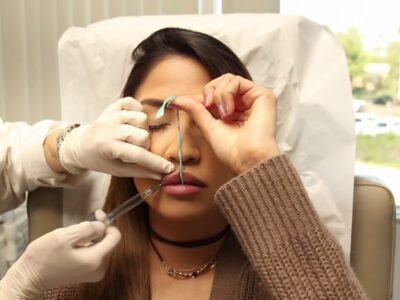Kidney cancer is a form of cancer that starts in the kidneys and spreads throughout the body. Your kidneys are two bean-shaped organs that are about the size of a fist each. They’re behind your abdominal organs, on either side of your back, with one kidney on either side. Dr. Sandeep Nayak, one of the best cancer surgeon in Bangalore, states that kidney cancer is often discovered during an imaging examination, for another cause, such as ultrasound, magnetic resonance imaging (MRI), or computed tomography (CT) scan (see Diagnosis). Kidney cancer is painless in its early stages. As a result, when the tumour grows large enough to damage surrounding organs, signs of the disease normally arise.
Causes
The majority of kidney cancers have unknown causes. Doctors know that kidney cancer starts when certain kidney cells undergo changes (mutations) in their DNA. The DNA of a cell contains the instructions that tell it what to do. The changes tell the cells to multiply and expand quickly. The abnormal cells clump together to form a tumour that can spread beyond the kidney. Some cells may split off and spread to other parts of the body (metastasize). Surgery is the most preferred treatment, the surgery is done by Surgical Oncologists.
Factors that are at risk
- Older age is one factor that can raise the risk of kidney cancer. Your risk of kidney cancer increases as you age.
- Tobacco usage. Smokers are more likely than nonsmokers to develop kidney cancer. After you leave, the risk decreases.
- Obesity is an issue. Obese people are more likely to develop kidney cancer than people who are deemed to be of a healthy weight.
- Blood pressure that is too high Kidney cancer is more likely if you have high blood pressure.
- Kidney failure treatment. Long-term dialysis is linked to a higher risk of kidney cancer in people with chronic kidney disease.
- There are a few hereditary syndromes. People with von Hippel-Lindau disease, Birt-Hogg-Dube syndrome, tuberous sclerosis complex, hereditary papillary renal cell carcinoma, or familial renal cancer who are born with such inherited syndromes, such as von Hippel-Lindau disease, Birt-Hogg-Dube syndrome, tuberous sclerosis complex, hereditary papillary renal cell carcinoma, or familial renal cancer, might have an increased risk of kidney cancer.
- Kidney cancer runs in the family. If anyone in your immediate family has had kidney cancer, you’re at a higher risk.
Signs and Symptoms
In the early stages of kidney cancer, there are normally no signs or symptoms. Signs and symptoms can appear over time, including:
- Urine that is pink, red, or cola-coloured has blood in it.
- Back or side pain that does not go anywhere.
- Unexplained weight loss
- Loss of appetite
- Fever
- Tiredness
Treatment
Surgery to eradicate the cancer is normally the first step in treating kidney cancer. This could be the only treatment option for cancers of the kidney. Additional therapies may be prescribed if cancer has spread beyond the kidney. You and your medical team should talk about your kidney cancer treatment choices together. The best treatment option for you can be determined by a variety of factors, including your overall health, the type of kidney cancer you have, whether cancer has spread, and your treatment preferences.
Surgical procedures
Surgery is the first line of treatment for most kidney cancers. Where necessary, the purpose of surgery is to remove cancer while maintaining normal kidney function. The following procedures are used to treat kidney cancer:
- Removing the damaged kidney (nephrectomy) (nephrectomy). A full (radical) nephrectomy entails the removal of the entire kidney, as well as a boundary of healthy tissue and, in some cases, additional nearby tissues such as lymph nodes, the adrenal gland, or other structures.
- The surgeon may perform a nephrectomy through a single incision in the abdomen or side (open nephrectomy) or through a series of small incisions in the abdomen.
- The tumour in the kidney is removed. The surgeon extracts cancer and a small margin of healthy tissue surrounding it rather than the whole kidney in kidney-sparing surgery, also known as nephron-sparing surgery. It can be performed openly, laparoscopically, or with the aid of robotics.
- Small kidney cancers are often treated with kidney-sparing surgery, which could be an option if you only have one kidney. To maintain kidney function and minimize the risk of later complications such as kidney failure and the need for dialysis, kidney-sparing surgery is usually favoured over total nephrectomy.













